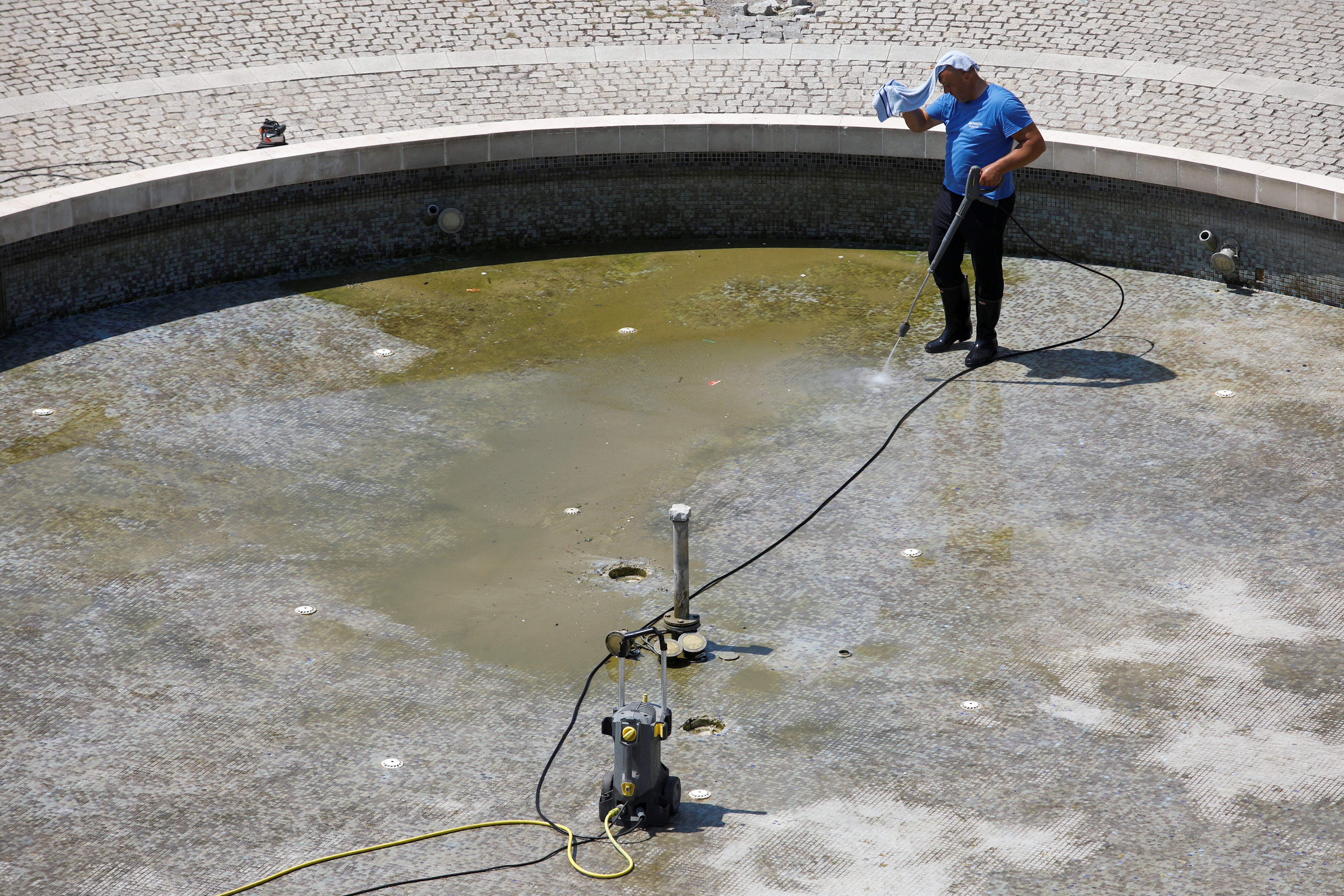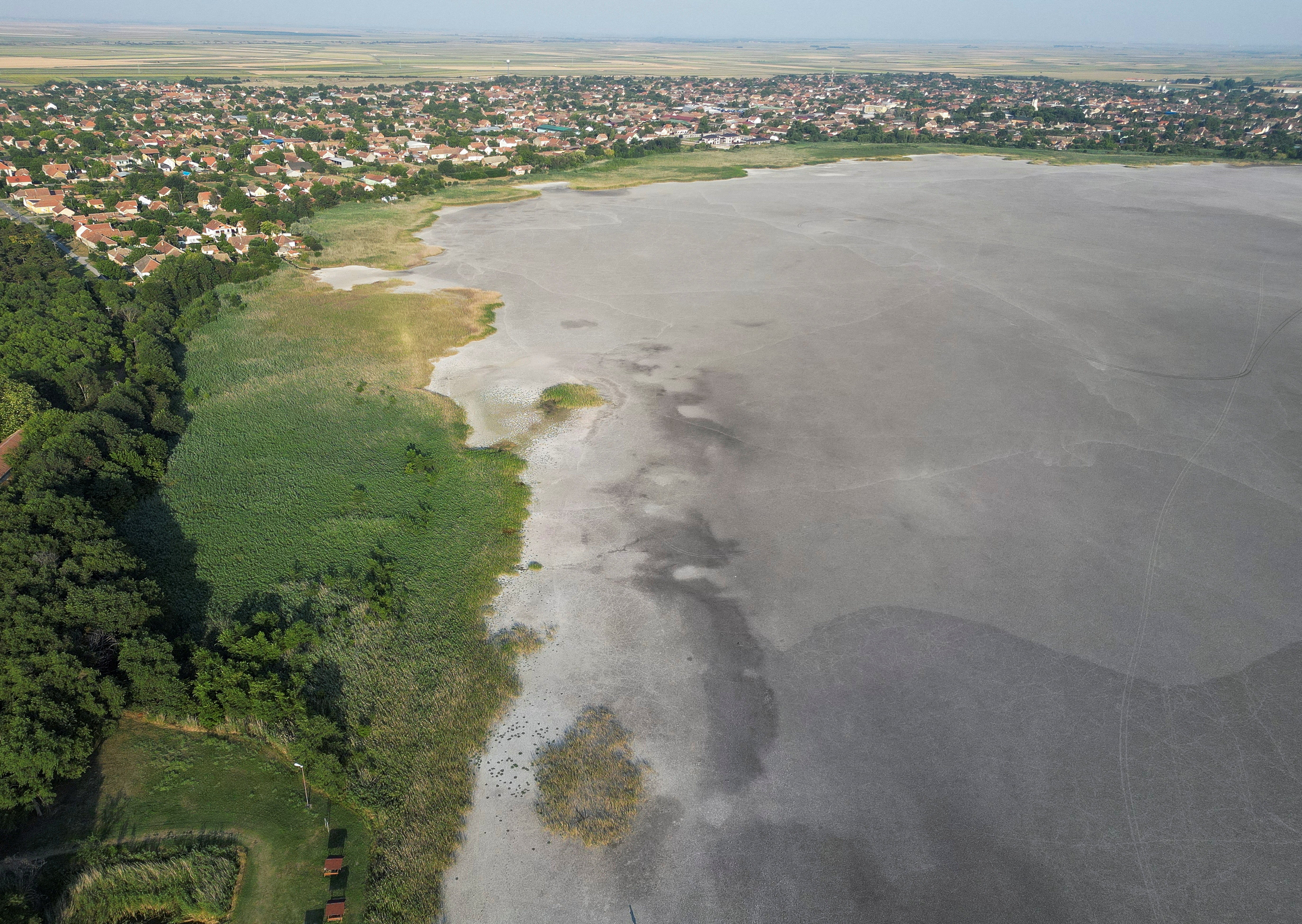Lakes dry up and seas hit by record temperatures as parts of Europe bakes through heatwave
In other parts of Europe, Italy is also expected to face blistering heat, with temperatures reaching 45°C

Your support helps us to tell the story
From reproductive rights to climate change to Big Tech, The Independent is on the ground when the story is developing. Whether it's investigating the financials of Elon Musk's pro-Trump PAC or producing our latest documentary, 'The A Word', which shines a light on the American women fighting for reproductive rights, we know how important it is to parse out the facts from the messaging.
At such a critical moment in US history, we need reporters on the ground. Your donation allows us to keep sending journalists to speak to both sides of the story.
The Independent is trusted by Americans across the entire political spectrum. And unlike many other quality news outlets, we choose not to lock Americans out of our reporting and analysis with paywalls. We believe quality journalism should be available to everyone, paid for by those who can afford it.
Your support makes all the difference.Much of Europe continues to bake under a prolonged heatwave, triggering forest fires and drying up a lake in Serbia for the first time.
Temperatures sizzled across the Balkans this week, with most of the countries in the region, which includes Croatia, Montenegro and North Macedonia, expecting temperatures of around 39C (102F).
In Serbia, the Rusanda salt lake in the northern province of Vojvodina, which contains medicinal mud, dried up for the first time ever, locals said.
“It was all marsh and now the marsh is gone. This is the lowest (lake) level ... and it is also affected by this drought,” said resident Sava Jovkic, 72.
On Wednesday, Serbia’s public health institute declared dangerous conditions in 10 municipalities. A day earlier, the capital Belgrade recorded its hottest-ever July 16, with a temperature of 38.4°C (101.1°F).

The Adriatic Sea hovered at temperatures around a record-high 29.5°C in several coastal resorts of Croatia.
It comes as a meteorologist warned such heatwaves could become more regular.
“At the moment, we are amid an extreme weather event, a heatwave characterized by its length and intensity,” Vladimir Djurdjevic, a Belgrade-based meteorologist, told Reuters, adding climate change could make such super-hot summers more frequent events.
North Macedonia and Albania both deployed firefighters, airplanes, and helicopters this week to fight forest fires in their countries. On Sunday, North Macedonia declared a state of emergency due to forest fires.
In a regional climate report on Wednesday, the World Bank warned that the economies of the Western Balkans needed to invest at least $37 billion in total over the next decade to protect people and property from the impact of climate change.
The Western Balkans comprise Albania, Bosnia and Herzegovina, Kosovo, Montenegro, North Macedonia, and Serbia.
In other parts of Europe, Italy is also expected to face blistering heat, with temperatures reaching 45°C. Searing temperatures have also impacted countries like Greece, France, Spain, Poland, and Ukraine.
The Italian health ministry placed 12 cities under the most severe heat warning Tuesday as a wave of hot air from Africa baked southern Europe and the Balkans and sent temperatures over 40 degrees Celsius (104 degrees Fahrenheit), with the worst still to come.
Palermo, Sicily was expected to join the list of red-bulletin cities on Wednesday, the health ministry said.
Join our commenting forum
Join thought-provoking conversations, follow other Independent readers and see their replies
Comments